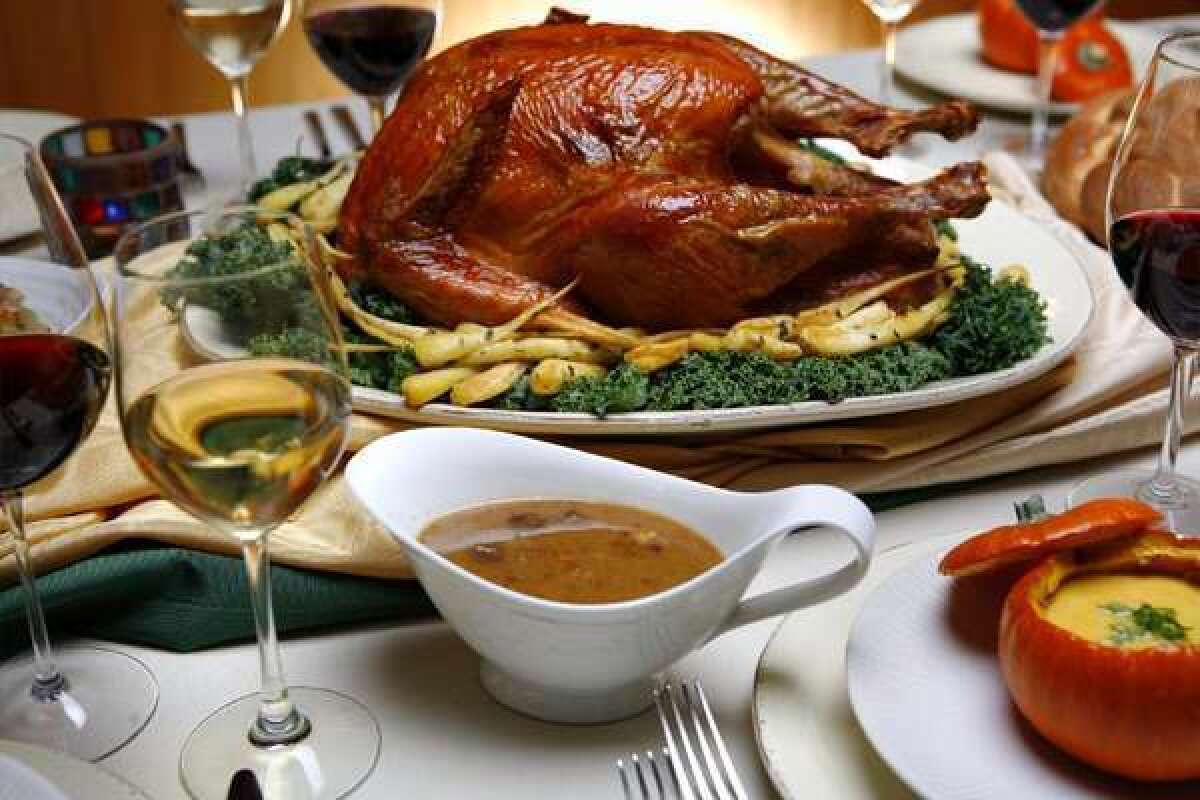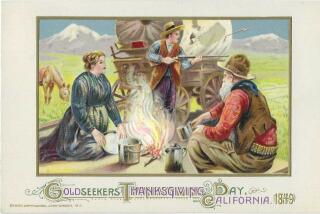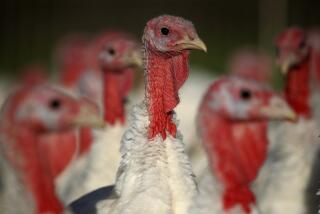Thanksgiving advice on the Web (some actually useful!)

- Share via
Ah, the holidays. Such a cozy time — filled with turkey and stuffing, cranberry sauce and bonhomie.
And such a potential minefield for your health. For every delicious meal, there are pounds to pack on and food-borne creepy-crawlies to avoid; for every long-awaited reunion, emotional stress to keep at bay.
In keeping with the spirit of the season, experts have loaded up the Web with heaping helpings of holiday advice. Some of it is useful.
KEEPING OFF THE POUNDS
Weight gain is always a key concern for holiday eaters. According to studies like this one in the journal Nutritional Review, Americans tend to put on a pound or two most holiday seasons. The Calorie Control Council, a trade group for the low-calorie food industry, says here that a typical Thanksgiving meal can average 4,500 calories and 220 grams of fat.
The blog Fooducate offers a particularly sensible approach to Thanksgiving eating. Turkey Day itself is not the time to worry about what you’re eating, the site says, advising that “If you are on a weight-loss diet, decide right now that Thanksgiving will count as a day off.” Fooducate also recommends the holiday hosts prepare no more than six dishes, letting guests fill in the gap. Small plates, and serving them up in the kitchen, usually mean less eating. Water and a nice wine are great, but avoid the “useless liquid calories” in soft drinks and juices. Giving guests a 15-minute break from eating after the turkey-eating is done gives stomachs a chance to feel full and limits dessert consumption.
Physicians at the Baylor College of Medicine stress the importance of staying active. “Try yoga to cope with the stress of the season, recommends orthopedic surgeon Dr. Theodore Shybut.
And the makers of the fiber supplement Konsyl offer a reminder that a good way to avoid weight gain is eating fiber (about 25 to 38 grams per day.)
AVOIDING FOOD-BORNE ILLNESS
Sadly, many people have digestive troubles after eating improperly stored and prepared Thanksgiving fare. At the U.S. Department of Agriculture’s FoodSafety.gov, this blogpost offers tips for avoiding “unwanted guests” like staph and listeria. The Food and Drug Administration offers holiday food safety tips here and here. The Centers for Disease Control also maintains a Food Safety page.
North Carolina State University food-safety expert Ben Chapman stars in a series of videos about food-borne illness and the holidays, available at the university’s website and on YouTube (which also provides links to more helpful videos.)
Chapman offers advice on proper defrosting and preparation. His take on washing the bird? No need to do it.
PREVENTING FIRES
Last year, Los Angeles Times writer Rosie Mestel reminded readers about the dangers of deep-frying the Thanksgiving turkey. Although celebrity chef Paula Deen insists that the cooking method is “foolproof, ya’ll,” most suggest that probably isn’t the case. Videos posted last year here and here from William Shatner and State Farm are worth another look.
FEMA’s U.S. Fire Administration advises against the practice too, and also provides this forward-looking take on Christmas Tree safety, including more dramatic videos.







